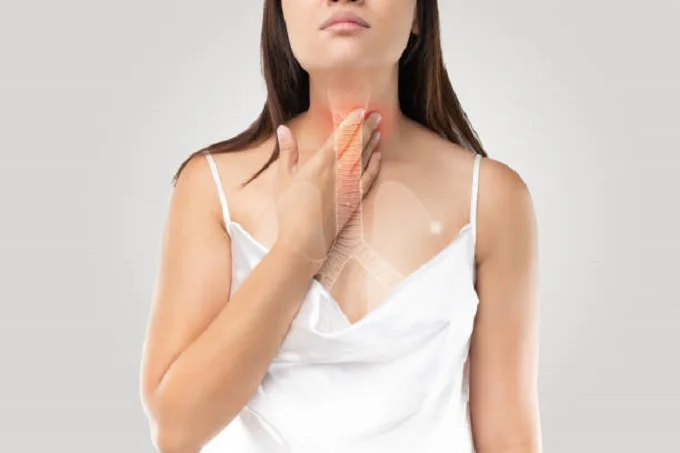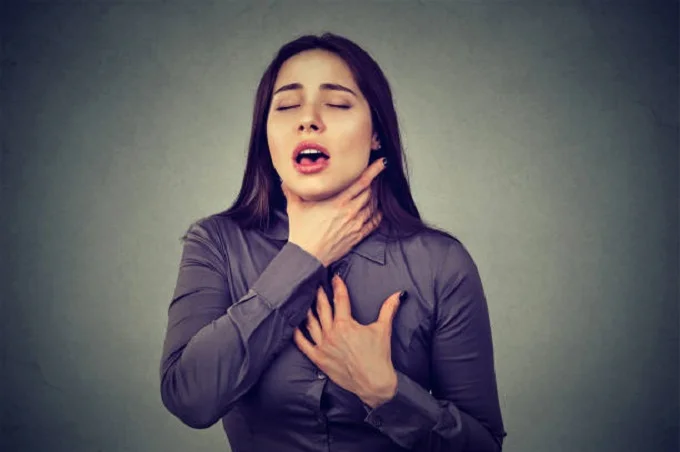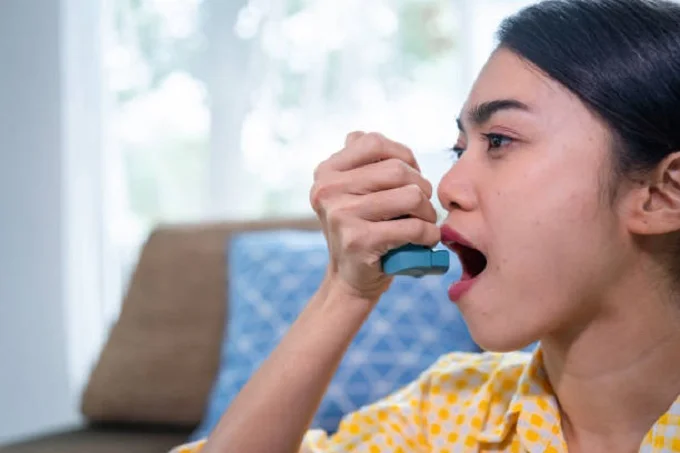Wheezing: causes and how to stop it

Wheezing is a condition where inhalation and exhalation are accompanied by a whistling or piercing noise. The doctor can hear it during the examination or on its own if it is loud enough.
Such breathing can develop in any person, regardless of gender and age, and be a temporary or chronic problem. You will learn about the causes of wheezing and methods of getting rid of it from this article.
what causes wheezing

A whistling sound occurs when air passes through narrowed passages. The latter, like inflammation, can occur in any part of the respiratory tract: from the lungs to the throat. However, they often affect the bronchial tubes deep in the lungs. There is a blockage in the flow of air passing through the respiratory system, and noise and wheezing appear.
To get the latest stories, install our app here
Several conditions cause these changes in breathing:
1. Asthma
This is a chronic disease that causes swelling and spasms of the bronchi. Asthma wheezing can be caused by exposure to airborne allergens such as pollen, mold, animals, or house dust. Viral diseases can also worsen asthma symptoms.
2. Bronchitis
This is an inflammation of the bronchial mucosa. Chronic bronchitis can last for several years and be accompanied by a cough with sputum. In this condition, the ability of the respiratory system to conduct air is significantly reduced, and ventilation of the lungs is disturbed. This is one of the most common causes of wheezing.
Acute bronchitis is quite common and develops due to a cold or other respiratory infection. It usually lasts from a week to 10 days, and after feeling better, the wheezing disappears.
3. Reactive airway disease
This disease is similar to asthma. Sometimes the body overreacts to various triggers. For example, infections, allergens, cold air, and chemicals cause airway swelling and increased mucus production. It can also cause the muscles around the airways to contract.
4. Congestive heart failure
Congestive heart failure occurs when a weakened or damaged heart cannot pump blood efficiently to the body. It enters the lungs and leads to breathing problems. In the presence of wheezing, heart failure is called cardiac asthma. It usually affects the elderly.
5. Smoking
The chemicals in tobacco products irritate the lungs. They inflame the airways and cause mucus to accumulate, which can cause wheezing. People who live with smokers and often inhale tobacco smoke are no less prone to breathing problems than those who smoke nearby.
To get the latest stories, install our app here
6. Vocal cord dysfunction
This condition causes our vocal cords to close rather than open when breathing. This makes it difficult for air to enter the lungs. A high-pitched wheezing sound due to dysfunction of the vocal cords occurs when inhaling and is known as stridor.
7. Anaphylaxis
Some allergies can cause a serious reaction known as anaphylaxis. It can cause respiratory failure and the work of the cardiovascular and nervous systems. One of the complications may be swelling of the bronchial tissues, which can cause wheezing.
How to stop wheezing

Wheezing is a reason to see a doctor to clarify its cause and begin immediate treatment, especially in cases where you feel wheezing and respiratory failure, coughing, chest pain, and fever. Also, symptoms, when you need to seek help urgently, include swelling of the lips or tongue, a bluish tint to the skin around the mouth and nails, or wheezing appearing after an insect bite.
If your doctor has determined that underlying medical conditions do not cause your wheezing, you can follow these suggestions to improve your condition.
1. Do breathing exercises
Choose breathing exercises that consist of alternating smooth inhalations and exhalations. Do them slowly and make time for this activity every day.
It is also helpful to breathe through pursed lips: take a short breath through your nose, then exhale twice as long, pursing your lips as if you are about to whistle something.
To get the latest stories, install our app here
2. Use an inhaler and an air freshener

Many people with wheezing are helped by inhalation. However, before taking them, you should consult with your doctor to ensure that this does not worsen your symptoms. To see if this method is right for you, take a hot shower, make the bathroom steamy, and stay in it for a while. If there is no cough, you can use an inhaler.
And if an allergy causes your wheezing to various substances from the environment, use an air purifier.
3. Avoid tobacco smoke
To improve your condition, you should stop smoking. And also, try not to be in smoky rooms or near people who smoke. This applies to cigarettes and alternative smoking methods – hookahs, vapes, and smokeless systems.
4. Walk more often
If your wheezing is the result of exposure to irritants, such as dust, odors, or pet hair, try to get outside more often. It could be a hike from work or a walk in the park. And if you don’t have such an opportunity, try to go out onto the balcony at least several times a day for 10-15 minutes to get some fresh air.
To get the latest stories, install our app here
5. Drink warm drinks
When you notice that your breath is wheezing, prepare a hot drink and drink it slowly for 10-15 minutes. Herbal teas are a great option. Try ginger, chamomile, menthol, or licorice root tea. Warm fluids soothe tense airways in the lungs and help stop wheezing.
Coffee in moderation can also provide some benefits. Caffeine widens the airways, which can help make breathing easier and stop wheezing. However, since caffeine also causes dehydration, drink no more than three cups a day and make up for this with plenty of water or other dehydrating drinks.




